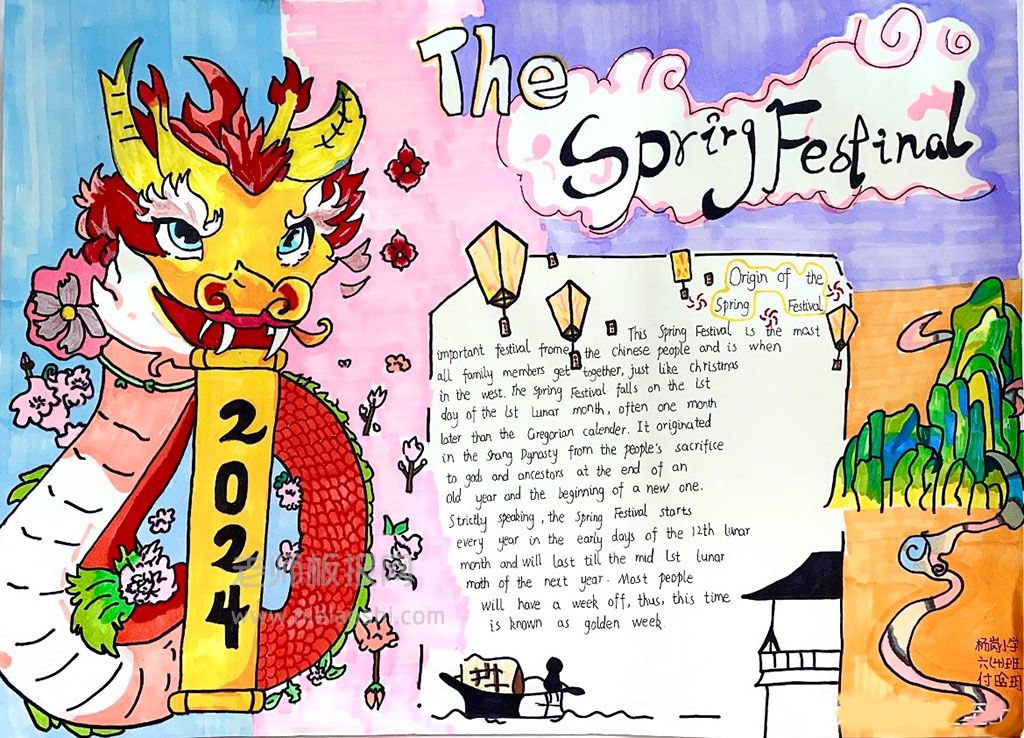
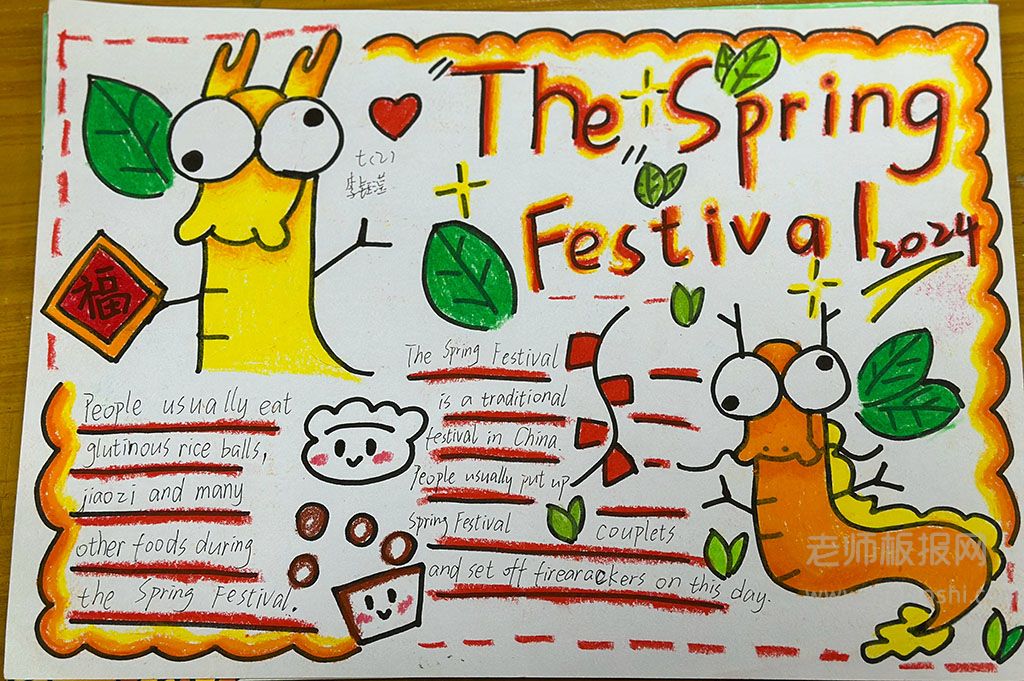
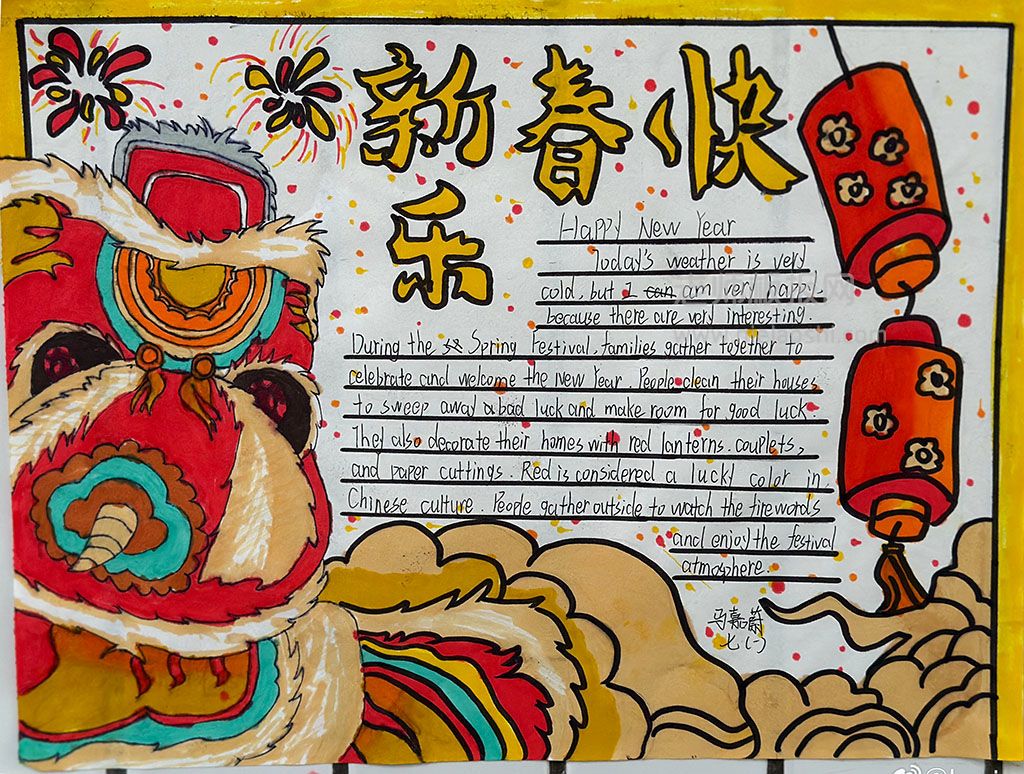
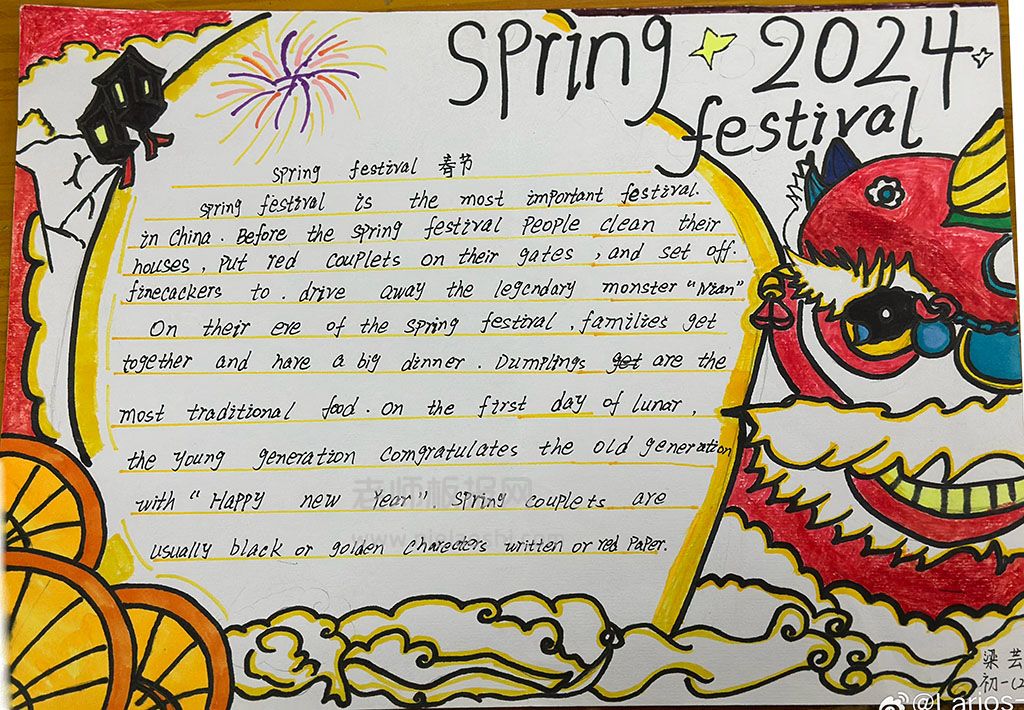
The Spring Festival is one of the traditional Chinese festivals and is celebrated on the first day of the first lunar month. This festival has a long history and carries thousands of years of cultural heritage and emotional bonds. The Spring Festival not only represents a new beginning and hope, but also an important node for family reunion and cultural inheritance.
译文:春节是中国传统节日之一,在农历正月初一庆祝。这个节日源远流长,承载着千年的文化底蕴和情感纽带。春节不仅代表着新的开始和希望,更是家庭团聚、文化传承的重要节点。
During the Spring Festival, people will post red couplets and hang lanterns to greet the elders, and families will have a reunion dinner. The customs of each region also have their own characteristics, such as northerners want to eat dumplings, and southerners must have rice cakes. On Chinese New Year's Eve, families gather to watch the Spring Festival Gala to welcome the arrival of the new year. These customs and events are permeated with a strong atmosphere of festivity and reunion.
译文:在春节期间,人们会贴红对联、挂灯笼,给长辈拜年,家家户户团圆吃团圆饭。而各地风俗也各具特色,如北方人要吃饺子,南方人则必备年糕。除夕之夜,家家户户会齐聚一堂观看春晚,迎接新的一年的到来。这些习俗和活动都渗透着浓厚的喜庆和团聚的氛围。
Chinese New Year is not only a traditional festival, but also a bond of family, friendship and neighborly relations. Through the Spring Festival, people inherit family culture, enhance feelings, and embody the values of respecting the old and caring for the young. At the same time, the Chinese New Year is also a time to express blessings and gratitude, and people use blessings to pray for a safe and successful new year.
译文:春节不仅仅是传统节日,更是联结亲情、友情和邻里关系的纽带。通过春节这个节日,人们传承家族文化,增进感情,体现尊老爱幼的价值观。同时,春节也是表达祝福和感恩的时刻,人们用祝福语来祈求新的一年平安顺利、事业有成。
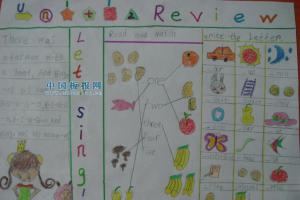 二年级英语12单元手抄报
二年级英语12单元手抄报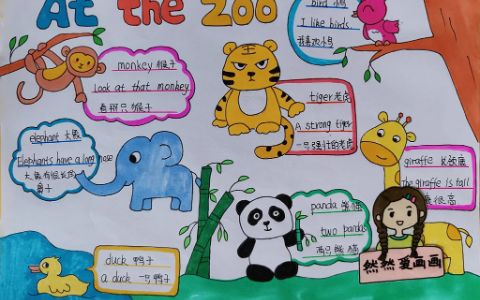 At the zoo在动物园英语手抄报绘画图片(1张)三年级英语手抄报
At the zoo在动物园英语手抄报绘画图片(1张)三年级英语手抄报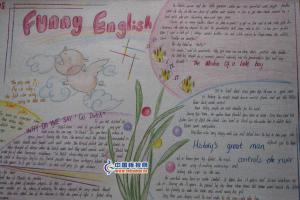 funny english hand-writting newspaper
funny english hand-writting newspaper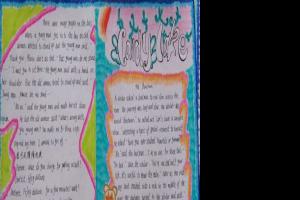 简易英语手抄报图片
简易英语手抄报图片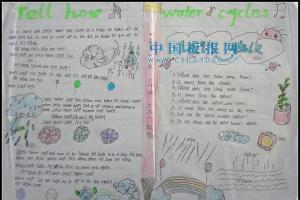 快乐ENGLISH小学生手抄报大全
快乐ENGLISH小学生手抄报大全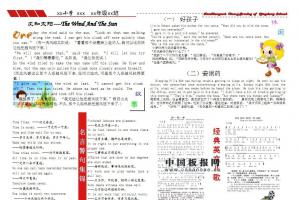 英文电子报图片及pdf源文件下载
英文电子报图片及pdf源文件下载